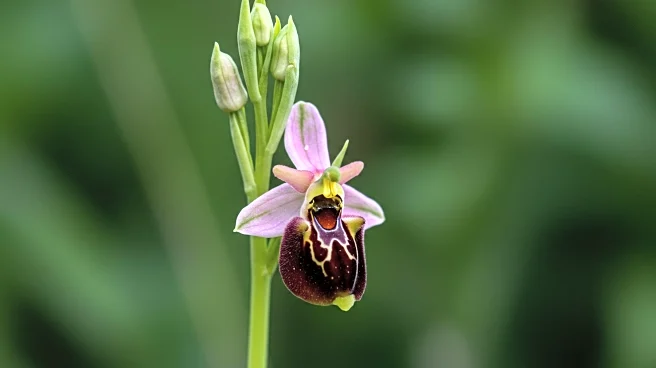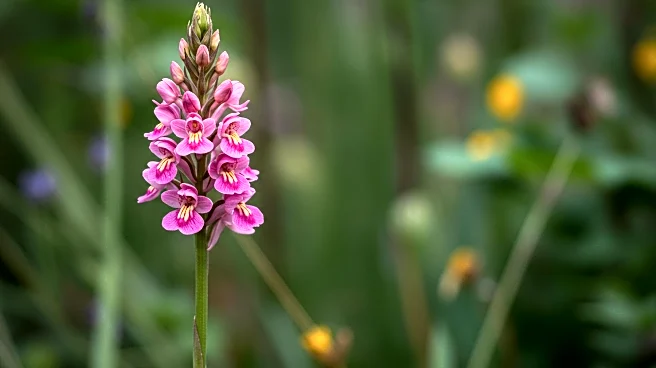What is the story about?
What's Happening?
Research has revealed the northward expansion of the Mediterranean orchid Ophrys apifera, driven by climate change. The study examined the genetic and ecological aspects of this shift, highlighting the orchid's ability to adapt to new environments through self-pollination. The research found that the orchid's populations in northern regions exhibit high genetic diversity, likely due to spatial isolation and limited gene flow. The study also identified areas in Poland, Germany, and the Czech Republic as suitable for further expansion, suggesting that climate change is altering the geographical range of this species.
Why It's Important?
The northward expansion of Ophrys apifera is a clear indicator of the impact of climate change on plant distribution. This shift could have significant implications for biodiversity and ecosystem dynamics, as new plant populations establish themselves in previously unsuitable areas. The study provides valuable insights into how species adapt to changing climates, which is crucial for developing conservation strategies. Understanding these dynamics can help predict future changes in plant distribution and inform efforts to protect vulnerable species and habitats.
What's Next?
Continued monitoring and research are needed to track the ongoing expansion of Ophrys apifera and assess its ecological impact. Conservationists and policymakers may need to consider new strategies to protect the orchid and its habitats, especially in regions where it is newly established. Further studies could explore the role of pollinators and mycorrhizal fungi in supporting the orchid's expansion, providing a more comprehensive understanding of its ecological interactions.
Beyond the Headlines
The study highlights the complex interplay between climate change and plant adaptation, emphasizing the need for integrated conservation approaches that consider genetic, ecological, and environmental factors. As climate change continues to reshape ecosystems, understanding these processes will be crucial for preserving biodiversity and maintaining ecological balance.
AI Generated Content
Do you find this article useful?













